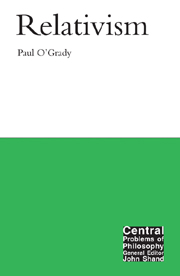3 - Ontological relativism
Summary
What is ontological relativism?
Ontology is that part of philosophy which investigates the fundamental structures of the world and the fundamental kinds of things that exist. Terms like “object”, “fact”, “property”, “relation” and “category” are technical terms used to make sense of these most basic features of reality. Until Kant, there was widespread agreement on the framework for debates about ontology, and varying accounts of existence, essence, substance and property were articulated and defended. This involved some of the great debates of Western philosophy, for example about the status of universals. However, amid these differences were shared aims (finding out the fundamental nature of reality) and shared methods (dialectical argumentation). Those philosophers who abstained from these debates did so from the position of scepticism, holding that we just don't have the cognitive wherewithal to decide any of these issues. Nevertheless, there was clear agreement on all sides that ontology had to do with portraying the nature of reality: telling it as it really is. Kant upset this consensus. His Copernican revolution introduced a new dimension to the debate. His suggestion was that ontology has to do with articulating the nature of reality as known to human cognition, not as it is in itself. In common with sceptics he denies our access to a world in itself. However, unlike sceptics, he believes there is still a point to doing ontology and still an account to be given of the basic structures by which the world is revealed to us.
- Type
- Chapter
- Information
- Relativism , pp. 53 - 88Publisher: Acumen PublishingPrint publication year: 2002
- 1
- Cited by

